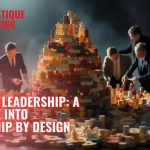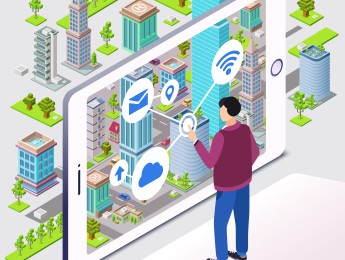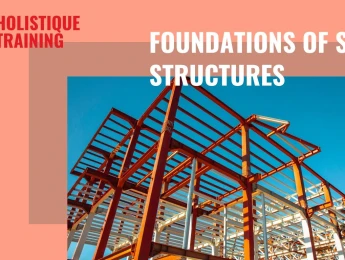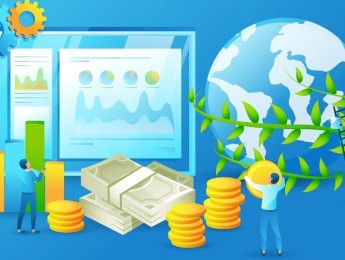Sustainability is becoming increasingly important throughout all industries and sectors in the modern world. However, sustainability often starts at the construction process. Sustainable project design prioritises sustainable goals from the beginning of the building process to reduce negative environmental impacts as much as possible.
Establishing a ‘green’ building can come with many challenges. Those intending to design a green building need to greatly consider the goals of the client and the provided budget. Sustainability can highly depend on the accessible resources, and it must take great care and effort to find the balance between resources, budget and ideal sustainable practices. Renewable energy sources are often the ideal method for increasing project sustainability. However, these must be carefully planned out and can often take up a large percentage of a construction budget.
These need to be strictly monitored to ensure the project design is implemented correctly and all sustainable processes are working as intended. Regular inspections to measure quality and function are essential to understand how the sustainable design features reduce environmental damage. Furthermore, any faults or inefficient functions should be discovered immediately to guarantee their repair or make adjustments.
Upon completion of this course, participants will be able to:
- Understand the importance of sustainable project design within construction.
- Assess the role project management plays for sustainable project design.
- Evaluate how to incorporate sustainability within construction project designs.
- Analyse how resources such as water and energy are used and make adjustments for more sustainable practices.
- Integrate renewable energy sources in project design.
- Examine methods of recycling and waste reduction throughout the design process.
- Effectively manage quality, efficiency and cost for designs.
- Recognise where sustainability is not possible and find alternative ways to reduce negative environmental impacts.
This course is designed for anyone in control of project design who desires to incorporate more sustainable practices. It would be most beneficial for:
- Architects
- Construction Managers
- Project Managers
- Engineering Personnel
- Sustainability Advisors
- Operations Managers
- Financial Advisors
- Site Supervisors
- Design Managers
This course uses a variety of adult learning styles to aid full understanding and comprehension. Participants will review genuine examples of project designs to highlight the sustainable practices included and the possible challenges faced throughout the implementation.
They will partake in various learning methods, including presentations, video materials, and group and individual activities to ensure a full opportunity for participants to develop their understanding of the knowledge. Throughout the practical activities, participants can create their own sustainable project design plans in relation to their respective roles to demonstrate their practical skills and receive positive and constructive feedback.
Day 5 of each course is reserved for a Q&A session, which may occur off-site. For 10-day courses, this also applies to day 10
Section 1: Introduction to Sustainable Project Design
- Identifying project goals and objectives.
- Evaluating goals and setting general and sustainability priorities.
- Ensuring all goals and practices comply with health and safety regulations.
- Monitoring possible environmental impacts of poor sustainability.
- Aligning health and safety with sustainable practices.
- Understanding where sustainability is not achievable.
Section 2: Sustainable Design and Building Economics
- Assessing methods of increasing sustainability.
- Balancing sustainable designs with budget, resource access and client needs.
- Incorporating renewable energy sources into the project design.
- Utilising quality management and control for material waste reduction.
- Analysing budget limitations and affordable options, including sustainable practices.
- Navigating change resistance.
- Claims, counter claims and disputes relating to sustainability.
Section 3: Green Concepts
- Fundamentals of a green building design.
- Greening the design – incentives, resistance and benefits.
- Developing measurable green standards for project designs.
- Coordinating all necessary parties to be green-positive.
- Examining all major and minor features of green building designs.
- Managing and meeting expectations.
Section 4: Planning, Scheduling and Resources
- Creating action plans detailing important factors and processes.
- Vital tools, instruments and techniques for effective scheduling.
- Receiving and incorporating feedback into the project design.
- Resource procurement, predicting possible problems and their solutions.
- Managing project design risk.
- Monitoring time, cost, quality and sustainable processes.
Section 5: Progress Monitoring and Control
- Project cash flow and progress payment.
- Regular inspections on quality, employee workmanship and sustainable practices.
- Revisiting sustainability designs and monitoring their implementation.
- Creating records detailing the full design and construction process.
- Making necessary changes throughout while minimising budget and productivity impacts.
Upon successful completion of this training course, delegates will be awarded a Holistique Training Certificate of Completion. For those who attend and complete the online training course, a Holistique Training e-Certificate will be provided.
Holistique Training Certificates are accredited by the British Assessment Council (BAC) and The CPD Certification Service (CPD), and are certified under ISO 9001, ISO 21001, and ISO 29993 standards.
CPD credits for this course are granted by our Certificates and will be reflected on the Holistique Training Certificate of Completion. In accordance with the standards of The CPD Certification Service, one CPD credit is awarded per hour of course attendance. A maximum of 50 CPD credits can be claimed for any single course we currently offer.
- Course Code IND13-106
- Course Format Online, Classroom,
- Duration 5 days














